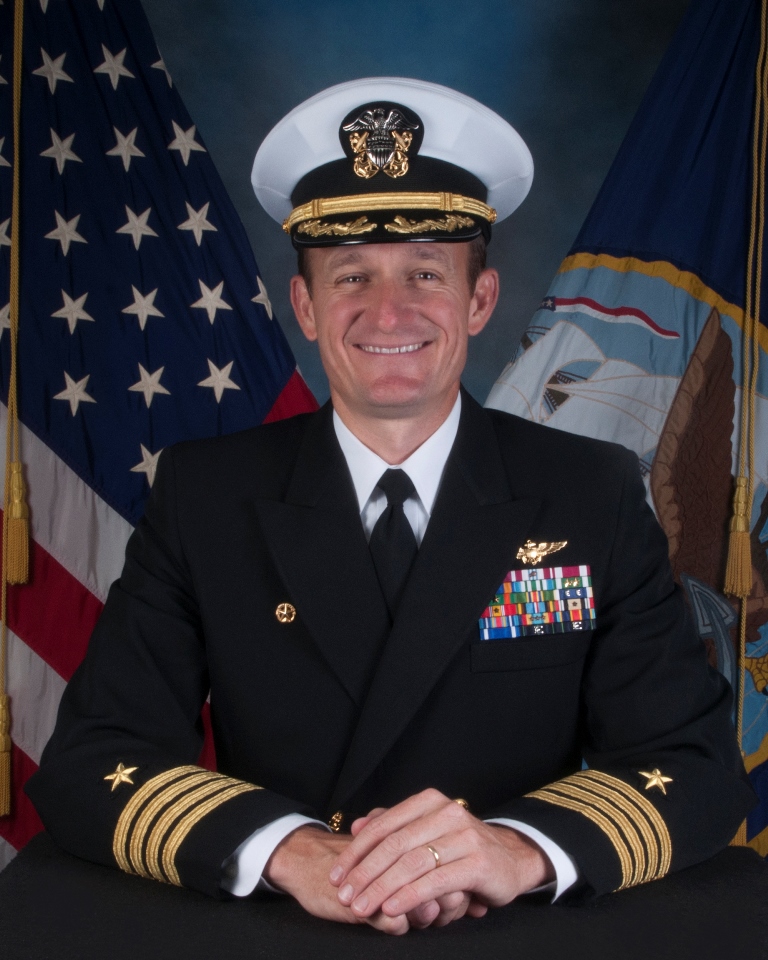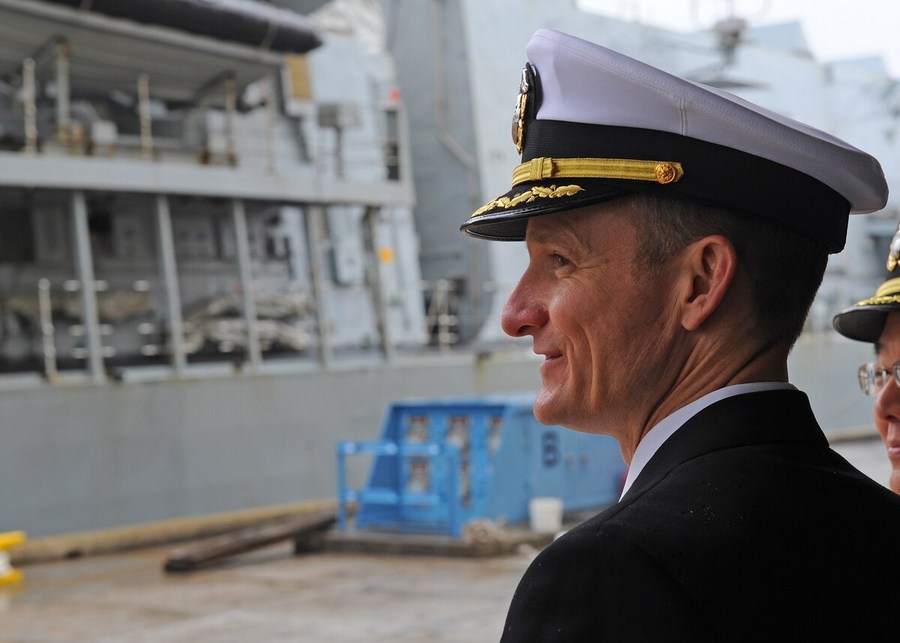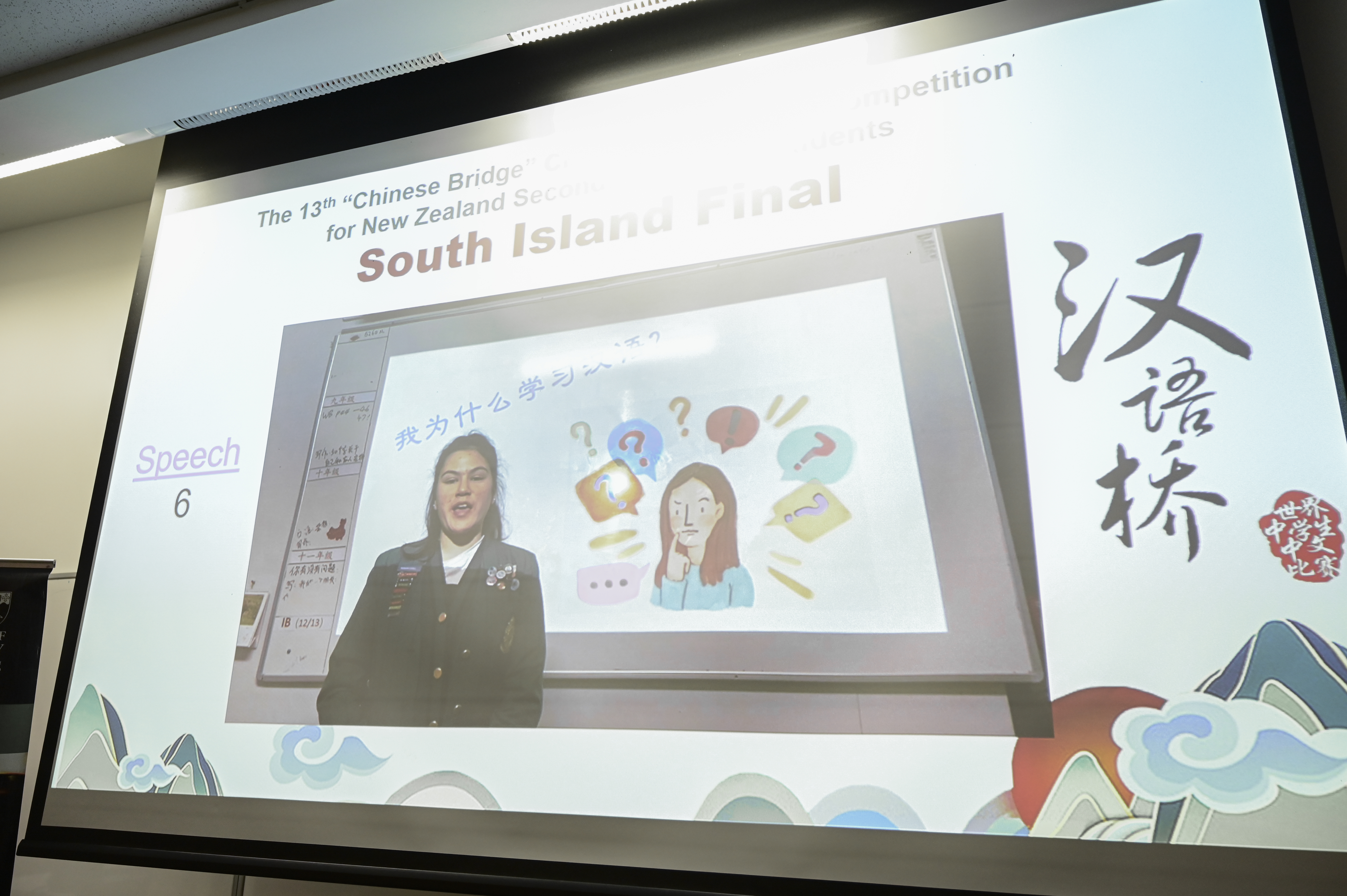
File photo of Brett Crozier, the fired commander of nuclear-powered U.S. Navy aircraft carrier USS Theodore Roosevelt. (Photo credit: America’s Navy)
Secretary of Defense Mark Esper “believes the investigation to be thorough, fair,” and supports the Navy’s decisions based on the findings, Pentagon spokesman Jonathan Hoffman tweets.
WASHINGTON, June 20 (Xinhua) — The U.S. Navy announced on Friday that the fired commander of nuclear-powered aircraft carrier USS Theodore Roosevelt will not be reinstated.
“I will not re-assign Captain Brett Crozier as the commanding officer of the USS Theodore Roosevelt, nor will he be eligible for future command,” Chief of Naval Operations Mike Gilday told reporters at the Pentagon.
Crozier was removed from his post in early April after an internal letter he wrote pleading for help with the COVID-19 outbreak on the USS Theodore Roosevelt was leaked to the media.

File photo of Brett Crozier, the fired commander of nuclear-powered U.S. Navy aircraft carrier USS Theodore Roosevelt. (Photo credit: Navy Times)
DECISION NOT TO REINSTATE
A preliminary probe by the Navy recommended that Crozier be reinstated but Gilday said he has changed his mind after what he called a “much broader, deeper investigation.”
“Had I known then what I know today, I would have not made the recommendation to re-instate Captain Crozier,” Gilday said. “Moreover, if Captain Crozier were still in command today, I would be relieving him.”
Secretary of Defense Mark Esper “believes the investigation to be thorough, fair,” and supports the Navy’s decisions based on the findings, Pentagon spokesman Jonathan Hoffman tweeted.
Crozier, in his letter, warned at that time of dire consequences if the outbreak on the ship was not handled quickly.
“We are not at war. Sailors do not need to die,” Crozier wrote. “If we do not act now, we are failing to properly take care of our most trusted asset — our sailors.”
Crozier was swiftly fired by then-acting Navy Secretary Thomas Modly, who himself resigned later after his remarks lashing out at the captain backfired.
Hundreds of USS Theodore Roosevelt crew gathered to applaud and cheer Crozier’s name when he left the ship, video on social media showed.
The aircraft carrier had been docked in Guam for two months and more than 1,000 sailors were reported to have infected with the novel coronavirus. One sailor died from it.
The report of the Navy’s wider investigation claimed Crozier did not quickly or forcefully enough “execute the best possible and available plan,” to protect sailors from the illness.
“When faced with barriers … Capt. Crozier waited for others to act rather than doing what we expect of our commanding officers — to take immediate and appropriate action and to drive outcomes,” the report stated.

File photo of Brett Crozier, the fired commander of nuclear-powered U.S. Navy aircraft carrier USS Theodore Roosevelt. (Photo credit: Stars and Stripes)
MORE PROBES
The Democrat-led House Armed Services Committee will conduct its own investigation into the coronavirus outbreak aboard the USS Theodore Roosevelt, its chairman announced on Friday.
“The severity of the COVID-19 spread on the Roosevelt, coupled with the fact that it was the first major outbreak DoD (Department of Defense) faced, warranted thorough investigation. The findings in the Navy’s extended investigation make it clear that the Navy did not respond the way they should have, or as quickly as they should have, to adequately address the outbreak,” Chairman Adam Smith said in a statement.
“The Department’s civilian leadership portrayed Captain Crozier’s decision-making aboard the Roosevelt as the critical weakness in the Navy’s response, but the truth is that civilian leadership was also to blame,” Smith said.
“In order to better understand the full range of mistakes that were made throughout the entire chain of command, the House Armed Services Committee has launched an investigation into the COVID-19 outbreak aboard the Roosevelt,” he added.
Mac Thornberry, the Republican ranking member of the House panel, said in a statement that it “is clear that there are lessons to be learned and improvements that must be made.”
Senator Richard Blumenthal, a Connecticut Democrat, tweeted that he will “carefully review the Navy’s report, but their verdict now seems to apply a retroactive standard & after-the-fact procedures to justify CAPT Crozier’s firing.”
“Barring any new evidence, it still seems that CAPT Crozier’s removal was retaliation for rightly raising concerns about the safety of his sailors,” Blumenthal added. ■










